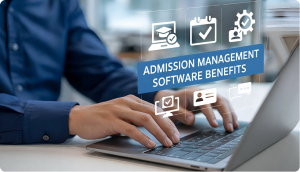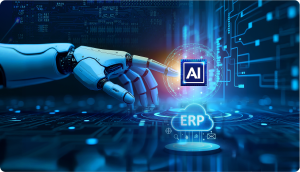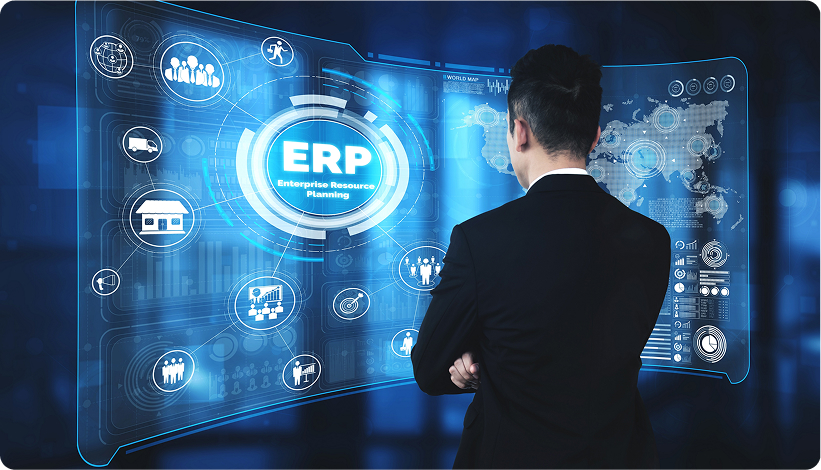
What is a College ERP System?
Operating a college these days isn’t only about educating, but also about running a plethora of day-to-day activities, from admissions to examinations to fee collection. And executing all this on a manual basis? It’s laborious, chaotic, and messy.
That’s where a College ERP System steps in. It is a one-stop shop software that makes colleges and universities handle everything under one roof. It takes care of student information, fees, schedules, communication, and others, efficiently and automatically.
Think of it as your centralized administration system that makes all activities function seamlessly behind the scenes. As your colleges expand and tasks become increasingly complex, a College ERP System is not only useful, but indispensable.
Why Do Colleges Need ERP Software?
Colleges have a lot going on every day: student admissions, classes, exams, fees, staff management, and much more. Handling all of this with paper files or separate software can be slow and confusing.
That’s why many colleges use an ERP system. It helps them do everything in one place, without the mess.
Here’s how it helps:
- Holds everything together in one system: No going back and forth between excel sheets, emails, or other tools. It’s all connected.
- Saves time and energy: Processes like taking attendance, sending fee reminders, or generating reports can be automated.
- Helps staff work better: Teachers, admin staff, and management can all see the same updated information, making teamwork easier.
- Improves student experience: Students get faster updates, easier access to their records, and better communication.
- Aids compliance with government regulations: The colleges can easily create reports needed for approvals or for audits.
Example: A college using ERP software can manage admissions online, students apply, pay fees, and get updates without coming to campus. This saves days of work for both students and staff.
In short, a College ERP System helps colleges run smoothly, work faster, and stay organized.
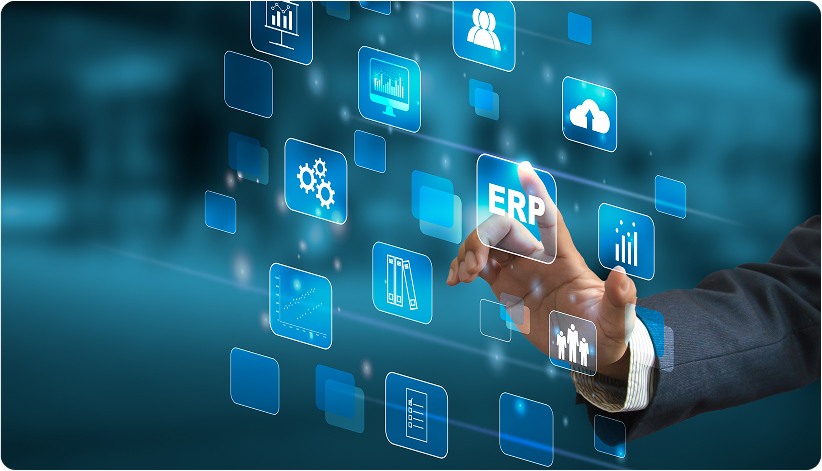
Customization: The Solution for Successful ERP Implementation
Each college is unique. Some specialize in engineering, others in arts and science. Some are large, having thousands of students, and others are tiny. So, a College ERP System cannot be a one-size-fits-all solution.
Customization means you can have an ERP software to fit your college’s unique needs. It lets each department work the way it’s used to, just faster and more efficiently.
Here’s why customization is so important:
- Works for your college’s workflow: The system can be implemented by each department, such as admissions, finance, or HR, according to the way they work.
- Add or remove features: Only use the modules your college really needs. You don’t have to deal with extra stuff.
- User roles and permissions: Set up different access levels for students, teachers, and admins.
When colleges opt for a customizable ERP, the system is friendlier and simpler to use. It is as if it were custom-made exclusively for them, and the result is improved outcomes and contented users.
Challenges in Implementing College ERP Systems
Deploying a College ERP System is not simply deploying software; it is a cultural transformation. Some challenges institutions commonly encounter are:
Resistance to Adopting New Technology
Some members of staff might be resistant to accepting new technologies. They are comfortable with the old methods and might not be willing to make a change.
Lack of Proper Training for Staff
If staff members are not given adequate training, then they will not be aware of the effective use of the ERP system. This results in mistakes and confusion.
Data Migration Issues
Transferring existing data (such as student information, fee details, etc.) to the new ERP system is problematic. Data is sometimes omitted, obsolete, or presented in an improper format.
Integration with Existing Systems
The college may already have other applications, such as attendance or library. If the ERP is incompatible, then it can cause other issues.
Managing Change Across Departments
Each department has its own way of working. Getting everyone to follow one system can be tough at first.
Security and Privacy Concerns
The ERP stores a lot of private information, about students, staff, and finances. Colleges need to make sure this data is well-protected from leaks or hacks.
Delays in Implementation Timeline
Setting up the ERP system takes time. If things aren’t planned well, the process may take longer than expected and cause delays in daily work.
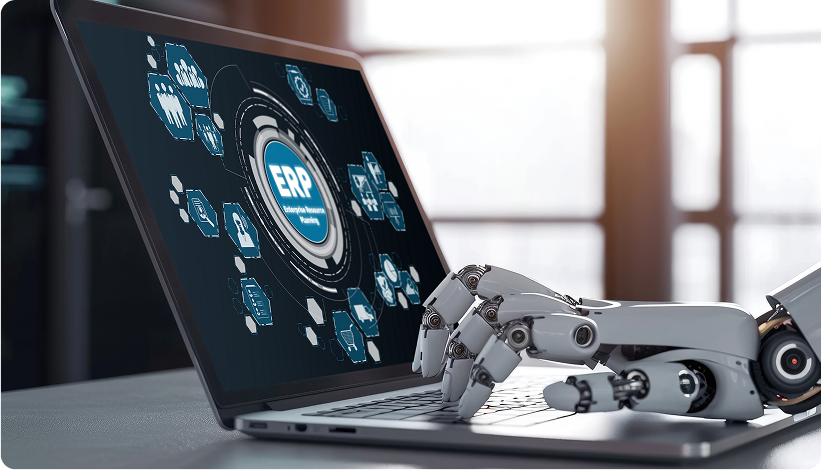
AI and Automation – The Future of College ERP Systems
Modern College ERP Systems are evolving rapidly. AI-powered automation is redefining how institutions handle administrative tasks.
Here’s how:
- Smart Data Analysis: The system can learn student performance and alert teachers well before a student is going to fall behind.
- Auto Alerts and Reminders: The system is capable of scheduling automated reminders for scheduled activities, exam schedules, and submission dates for fees.
- Report Automation: Goodbye to spending hours getting reports ready. The ERP can generate them immediately, accurate and up to date.
- Improved Decision-Making: The use of AI enables the administration to follow trends and make better planning, such as forecasting admission figures or resource usage.
Such features not only save time but also elevate the student and faculty experience by reducing manual intervention and improving responsiveness.
Edumate ERP for Higher Institutions
One standout solution in the ERP space is Edumate, it’s designed specifically for higher educational institutions, with features that match their unique needs.
Edumate covers modules like:
- Admission Management
- Fee Management
- Faculty Management
- Program and Course Management
- Exam Management
- Placement Management
- Mentorship Program
- Report Management
Through cloud-based availability, personalized dashboards, and robust data security functionalities, it enables institutions to make a seamless entry into the digital age.
Final Thoughts
College administration is a lot to handle day to day. The College ERP System makes life simpler, having all those things under one roof, admissions, fees, examinations, and all.
It saves time, reduces mistakes, and helps students and staff stay organized. Starting with an ERP system might take some effort, but once it’s set up, it makes a big difference. With new features like AI and automation, these systems are getting even better and smarter.
If your college needs to work faster, be more organized, and be well-equipped with latest technologies, then having an ERP system like Edumate is a good idea.
Ready to make your college smarter and more efficient? Let Edumate handle the hard work while you focus on education.
Reach us today to get started!
FAQs
How does a College ERP System work?
It integrates all college departments into one platform, allowing real-time access to data, automation of tasks, and improved coordination between academic and administrative units.
What modules are typically included in a College ERP System?
Common modules include Admissions, Academics, Examinations, Finance, HR & Payroll, etc.,
Can a College ERP System be customized for different departments?
Definitely. Most contemporary ERP applications are component-based and can be tailored to accommodate department-level workflows and needs.
How secure is the data stored in a College ERP System?
Data security is a top priority. Cloud-based ERP systems typically use encryption, firewalls, role-based access, and regular backups to ensure data privacy and compliance.
Is training required to use a College ERP System effectively?
Yes. Even the most user-friendly ERP systems require initial training for staff and faculty to make the most of all features.
How long does it take to implement a College ERP System?
Depending on the size and complexity of the institution, implementation can take anywhere from a few weeks to several months. A phased rollout is often preferred to minimize disruptions.



